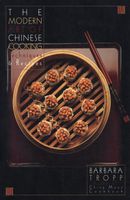Advertisement
Cassia Bark
桂皮 mandarin: gway-pee; Cantonese: gwai-pay
Published 1982
Cassia bark (Cinnamomum cassia) is often called “false cinnamon” or, in cookbooks, “Chinese seasoning stick” or “Chinese cinnamon.” Native to China, it is the thick, inner bark of an evergreen of the laurel family, a tree that figures largely in Chinese poetry because of its aroma and the mythic association of the cassia tree with the moon. Thicker and stronger in flavor than the cinnamon sticks common to Western kitchens, cassia bark is also a ruddier brown, with a pungent smell that reminds me of the candies called “red hots.” It is sold in Chinese groceries and pharmacies, either in bulk or packaged in small plastic pouches. Judge it by smell, the more pungent the better. The shape, which varies from thick, woody slabs to thin shards, is not an issue so long as the fragrance is pronounced.


